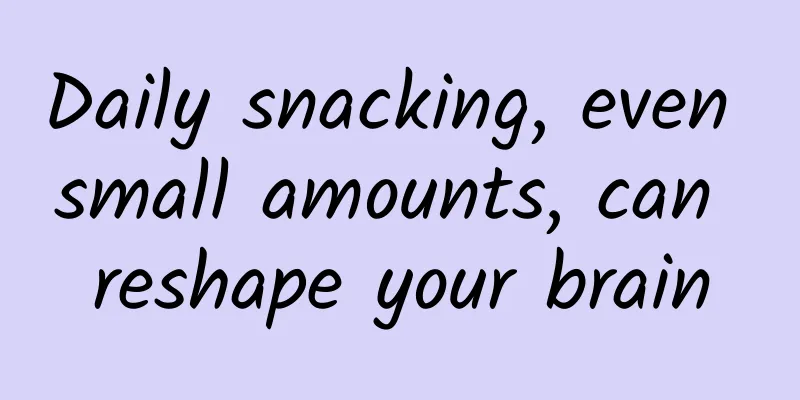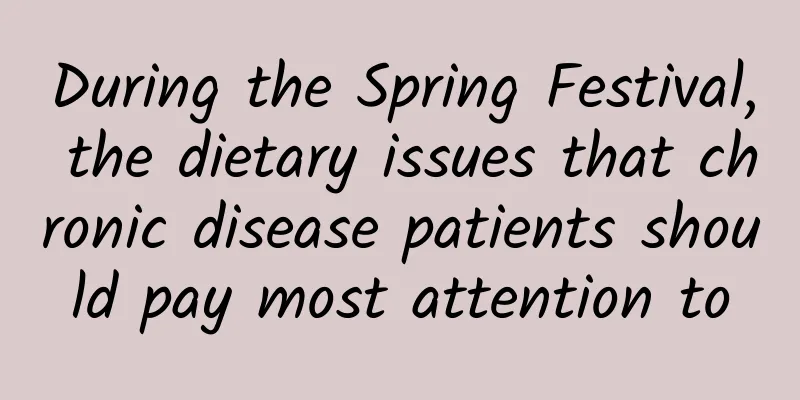Daily snacking, even small amounts, can reshape your brain

|
Friends often ask me, if I only eat a little sweets or snacks every day and the calorie intake is not exceeding the limit, then it should be fine, right? Sorry, I have bad news. A Yale University team found that high-sugar, high-fat foods will subtly reshape the brain and modify the reward mechanism. Even if consumed in small amounts on a daily basis, the brain will be more inclined to choose these foods in the future. Image source: References We all know that the key to developing a habit is persistence. If you do the same thing every day for a period of time, it will become a habit. This is the law of the brain. You think that controlling yourself and eating only a small amount of snacks every day is self-discipline, but in fact, for the brain, this is cultivating the habit of consuming high-calorie foods. You: Exercise restraint and only eat a few snacks each day. Brain: Stick with it and have a small snack every day. For scientists, this is called: continuous and high-frequency exposure to high-sugar and high-fat foods. A little bit every day can change your brain The researchers recruited a group of volunteers aged around 25 with normal BMI and physical indicators. At the beginning of the experiment, after instrumental testing, the volunteers had similar preferences for high-sugar and high-fat foods, neither strongly liking them nor disliking them. The volunteers were then randomly divided into two groups. They all maintained a normal diet, the only difference was the snacks the scientists gave them. Image source: Made by the author Except for the different sugar and fat content, the calories of the two groups of yogurt are the same. Eat 1 yogurt twice a day. Eight weeks later, it was time to reveal the answer. The researchers used an fMRI machine that can scan brain activity to test the volunteers' responses to high-sugar and high-fat foods. The test process and results are very interesting, and they are roughly like this: Researcher : Would you like to drink a milkshake? The brains of the high-sugar and high-fat group: What? Milkshake? Did he just say milkshake? (The relevant brain areas are aroused and sparkling) The brains of the low-fat, low-sugar group: Yes. (Nothing changed.) After drinking the milkshake, the brains of the high-sugar and high-fat group: delicious and satisfying. (The relevant brain areas were aroused and sparkling) The brain of the low-fat, low-sugar group: I should have ordered pineapple flavor. (Nothing happened) In short, the group of people who ate a little high-sugar, high-fat yogurt every day had a greatly enhanced brain response to high-fat and high-sugar foods, especially the activation and remodeling of the dopaminergic system in the brain responsible for motivation and reward. Not only that, this group of volunteers also disliked eating low-fat foods, which shows that the brain's preference for fat has also changed. The results are still amazing. Eating a small amount of sweets every day can rewire the brain's neural circuits and adjust the reward mechanism in a short period of time. Synapses hold hands, sugar and oil go together for life. Image source: giphy.com It is too easy to develop a sugar-and-fat brain! This is similar to the mechanism of drug addiction. Habitual exposure to high-sugar and high-fat foods will first cause the nerves to produce adaptive behavior, followed by increasing desire and dissatisfaction, increasing the risk of overeating and weight gain, and then causing obesity. Although there were no significant changes in the weight, blood sugar, cholesterol and other indicators of the two groups of volunteers, the researchers estimated that the volunteers' preference for sugar and oil would not change for a while after the experiment... The researchers explain: New connections are formed in the brain and they don't disappear as quickly. After all, the whole point of learning is that once you learn something, you won't forget it so quickly. Copyright images in the gallery. Reprinting and using them may lead to copyright disputes. Many people inadvertently Cultivating Sugar Oil Brain In fact, many people are inadvertently exposed to high-sugar and high-fat foods at a high frequency and continuously, because such foods are too common and too easily available in the modern environment. On Monday, it’s not too much to have a cup of milk tea before work, right? On Tuesday, a colleague fed me a Swiss roll. On Wednesday, have a cup of seasonal coffee, two pumps of syrup and a top of cream. Thursday, crazy Thursday, v me 50. On Friday, the group next door celebrated and I got a piece of cake. Although I eat light meals diligently every day and feel that I am quite restrained in my diet, I never expected that I would fail because of these intentional or unintentional small snacks. Not only that, the box of salad dressing we usually pour on our light meals and the few pieces of braised pork in the set meal are all sugar and oil traps that expose us more frequently. In fact, if you only consume this little bit every day and don’t exceed the calorie limit, it won’t cause too much trouble to your body. The problem is that the brain will become more and more greedy. Slowly you will find: It has become more difficult to walk past the supermarket snack aisle without looking sideways; Saying no to sweets requires more willpower and is more likely to fail; If I don’t have sweets for a day, I feel unsatisfied. Once you've become a sugar-fueled brain, it's hard to control your diet. However, it's not all bad news. After all, we've found another reason why weight loss fails. In other words, you're one step closer to losing weight successfully. What we can do is: avoid continuous and frequent exposure to high-sugar and high-fat foods . Lengthen the time interval between exposure to high-sugar and high-fat foods to avoid frequent strengthening of this neural circuit and block the path of sugar and oil in the brain. But high-sugar and high-fat foods... can't be given up! What should I do if I want to eat them? It might be a good idea to control your diet and set a cheat day. References [1] Edwin Thanarajah S, DiFeliceantonio AG, Albus K, Kuzmanovic B, Rigoux L, Iglesias S, Hanßen R, Schlamann M, Cornely OA, Brüning JC, Tittgemeyer M, Small DM. Habitual daily intake of a sweet and fatty snack modulates reward processing in humans. Cell Metab. 2023 Mar 15:S1550-4131(23)00051-7. Planning and production Source: DingXiangYiSheng Planning丨Deanna Producer: Feidi Review丨PhD Candidate at Xie Shize Neuroscience Institute Editor: Zhong Yanping Proofread by Xu Lailinlin |
<<: There are only a few days left! Have you eaten this year's spring vegetables?
>>: When did "dog" become an adjective?
Recommend
Rolls-Royce's first SUV official spy photos revealed
Recently, Rolls-Royce released two official spy p...
Is there a chance for humans to slow down or stop aging and thus extend their lifespan?
If we first want to define the personality of the...
Xiaomi will lose the patent war? Where does Ericsson get the confidence from?
"May 21st". This is probably one of the...
Motorola: Buy a Moto X with a "native Android experience" for the Spring Festival
This should be the most exciting news during CES:...
In fact, penguins have cold feet too!!!
Audit expert: Ran Hao Well-known science writer W...
Shanghai college entrance examination postponed for one month
On May 7, the Shanghai Municipal Epidemic Preventi...
When doing operations, should you work for a big company or a small company?
Each case has undergone in-depth information sear...
How is the advertising fee of Douyin Star Map calculated? Douyin Star Chart Advertising Fee Billing Method Revealed
Self-media and short videos are very popular nowa...
In the future, can electric cars replace gasoline cars?
With the development of society and the advanceme...
Bacteria are so "fertile", will the earth be occupied by them one day?
Produced by: Science Popularization China Author:...
Domestic products are counterattacking Korean products!
Over the past year or so, the impact of the epide...
Film photos can actually be retouched to deceive the whole world...
In today's world of digital photograph...
Zhihu’s road to commercial monetization!
From launching the live streaming function to the...
The evolution of super APP content
[[248684]] Reviewing the three major super apps u...
A complete guide to Douyin dou+ placement skills
With the explosive growth of Tik Tok, the gamepla...









